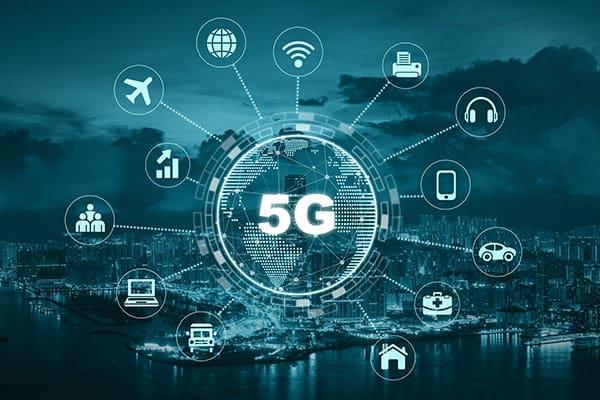
Introduction
In the ever-evolving landscape of technology, 5G has emerged as a game-changer that promises to revolutionize our digital world. The fifth generation of wireless communication technology, known as 5G, is not just an incremental improvement over its predecessors; it’s a quantum leap that will redefine how we connect, communicate, and interact with our digital environment. This blog explores the profound impact of 5G technology on various aspects of our lives, from faster internet speeds to the growth of the Internet of Things (IoT) and the potential for new innovations.
Blazing-Fast Internet Speeds
One of the most significant and immediate impacts of 5G technology is the remarkable increase in internet speeds. With 5G networks, users can expect download speeds that are up to 100 times faster than 4G. This means that tasks such as streaming high-definition video, online gaming, and downloading large files will become virtually instantaneous. The reduction in latency also enables real-time communication, making video conferencing and online collaboration more seamless and efficient.
Enhanced Mobile Connectivity
5G’s impact extends beyond faster internet speeds. Mobile connectivity is set to undergo a transformation as well. With lower latency and higher capacity, 5G will enable more reliable and consistent connections, even in densely populated areas. This translates to improved call quality, better video streaming, and a superior overall mobile experience. Additionally, 5G’s increased capacity will allow for a more extensive range of connected devices and applications.
Internet of Things (IoT) Expansion
5G’s role in the expansion of the Internet of Things (IoT) cannot be overstated. IoT devices, from smart thermostats to autonomous vehicles, rely on seamless and high-speed connectivity to function optimally. 5G’s robust network capabilities make it possible to connect and manage a vast array of IoT devices, paving the way for the smart cities, smart homes, and smart industries of the future. This proliferation of IoT devices will lead to increased efficiency, automation, and data-driven decision-making in various sectors.
Transforming Healthcare
The healthcare industry is poised to benefit significantly from 5G technology. With low latency and high bandwidth, remote monitoring, telemedicine, and surgical robotics will become more accessible and reliable. This means that patients in remote areas can access healthcare services with the same quality as those in urban centers. Surgeons can perform delicate operations with precision from thousands of miles away, and healthcare providers can monitor patients’ vital signs in real-time.
Smart Cities and Infrastructure
5G technology is a crucial enabler for the development of smart cities. These connected metropolises rely on sensors, data analytics, and automation to enhance the quality of life for their residents. 5G’s high bandwidth and low latency will support smart transportation systems, energy-efficient lighting, waste management, and much more. This will result in reduced congestion, improved public services, and a more sustainable urban environment.
Augmented and Virtual Reality (AR/VR)
The world of augmented and virtual reality is on the cusp of a revolution, thanks to 5G. The enhanced connectivity and reduced latency of 5G networks will enable more immersive and responsive AR and VR experiences. From gaming and entertainment to education and training, the possibilities are boundless. Architects, for example, can use AR to visualize and interact with 3D models of their designs on-site, while medical students can perform virtual surgeries in a realistic environment.
Transforming Industries
5G technology will be a catalyst for innovation across various industries. Manufacturing will benefit from real-time monitoring and control of machines, while agriculture will use 5G for precision farming. The automotive industry is pushing forward with autonomous vehicles that rely on 5G for communication between vehicles and infrastructure. These changes will lead to increased efficiency, reduced operational costs, and a more sustainable approach to business.
Security and Privacy Concerns
While the benefits of 5G are immense, they come with their share of security and privacy concerns. The sheer number of connected devices and the data they generate make them potential targets for cyberattacks. Ensuring the security and privacy of this vast network will be a significant challenge, requiring ongoing efforts in encryption, authentication, and monitoring.
Conclusion
5G technology is poised to bring about a profound transformation in our digital world. With faster internet speeds, enhanced mobile connectivity, and an explosion of IoT devices, we are on the brink of a new era of innovation and connectivity. From healthcare to smart cities, from AR/VR to industry-specific applications, 5G’s impact will be felt across the board. However, it is crucial to address security and privacy concerns to ensure that this revolution occurs in a safe and secure digital environment. As 5G continues to roll out and evolve, it will be exciting to witness the myriad ways it shapes our lives and the limitless possibilities it unlocks.